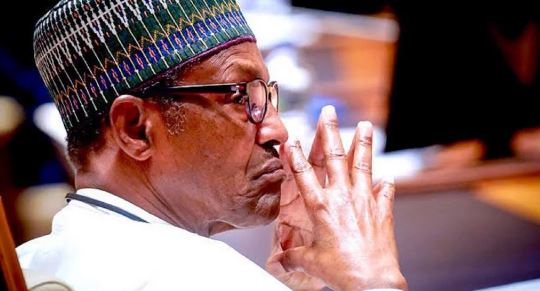Nigeria’s 2022 federal budget should interest the government and Nigerians for more than one reason. First, it is the last one that the current administration will be fully in charge of, from design to implementation. By this time next year, the team in Aso Rock now will be less than six months away from leaving office.
This year’s budget also has highest level of deficit in recent memory, to the tune of N6.39 trn or 37.4 per cent of the N14.6 trn total expenditure. This is about 3.5 per cent of our GDP, higher than the prescribed maximum deficit-to-GDP ratio of three per cent in the Fiscal Responsibility Act. This deficit will be funded largely by both foreign and domestic borrowing. And third, at N17.13 trn, the 2022 budget is the highest ever in Nigeria’s history, some 18 per cent higher than the next highest 2021 budget.
- Osinbajo, Lawan, govs grace Adamu Adamu’s daughter’s wedding
- How air travellers suffer from West Africa’s poor connectivity
In other words, the 2022 budget presents this government with some ‘last chance’ opportunities but also significant challenges. Key global, regional and domestic economic indicators look relatively good for the government this early in the year. According to the IMF, the global economic recovery begun last year will continue, reaching a world output of around 4.9 per cent in 2022, from -3.1 per cent in 2020—the peak of pandemic lockdowns in the past two years. Africa’s economic growth is also projected to witness a slight uptick, from 3.7 per cent in 2021 to 3.8 per cent of continental Gross Domestic Product (GDP) in 2022.
Moreover, the World Bank forecasts that crude oil prices will average US$74 per barrel in 2022, against a cautious benchmark of US$62 per barrel in this year’s budget. All of these present clear opportunities for the domestic economy which is expected to continue the upward trends in growth recorded in 2021 to improve projected revenues by 38 per cent of last year, even with the unprecedented deficit.
But favourable economic projection numbers on paper are one thing their impacts on the welfare of the people are another in Nigeria. The history of budgeting and its implementing in Nigeria—under this government and those before it—does not offer much hope for Nigerians. It is true that compared to previous administrations, the Buhari government has cut down on the unnecessary delays between submission of proposed budgets to the National Assembly and their passage into laws. It is also to the government’s credit that the gap between capital and non-debt expenditure has been narrowed somewhat in the past few years.
Still, some of the drawbacks that trailed the budgets in previous administrations have persisted. It is also worrisome that the release of funds and implementation of budgets have not improved under the current administration. For instance, as of October 2021, barely N1.73 trillion or 34.8 percent of the N4.98 trillion capital budget for the 2021 fiscal year had been released. Of course, this had adverse effects on implementation and performance.
Also, as with previous budgets in Nigeria, over 60 per cent of the non-debt recurrent expenditure of N6.83trn will be going to personnel costs, for a federal civil service that is only a tiny fraction of Nigeria’s total population. And again, the 2022 budget is replete with the inclusion of frivolous expense items in the Ministries, Departments and Agencies (MDAs). For example, it beggars’ belief that the Federal Inland Revenue Service (FIRS), a tax collection agency that should teach other MDAs the art and science of prudent spending, will be pouring N2.8 bn on uniforms and N550m on meals. This is not to talk of such agencies as the Aso Rock Clinic to which huge sums are allocated yearly, even though the President himself prefers hospitals abroad.
Nor are sectoral allocations in the 2022 budget much better in previous years. It is good that the Buhari government has kept its promise of raising the education budget by 50 per cent against last year. But even with the global COVID 19 pandemic and recent outbreaks of cholera and Lassa fever in the country, statutory allocation to the health sector is still less than 5 per cent in this year’s budget.
However, beyond all these, the most critical factor now is a faithful and transparent implementation of the budget. Given that this is the last full-year budget to be implemented by this administration, it behooves the authorities to ensure that the document as signed by the president is implemented in such a way as to make the greatest impact on Nigerians.
Therefore, while we cannot but agree with what the Honourable Minister of Finance, Budget and National Planning, Mrs Zainab Ahmed said last week that “the effective implementation of the 2022 Budget is very critical for delivering Government’s legacy projects”, we are also quick to emphasize the caveat on “effective implementation”. For Buhari and his government, this is the last chance.

 Join Daily Trust WhatsApp Community For Quick Access To News and Happenings Around You.
Join Daily Trust WhatsApp Community For Quick Access To News and Happenings Around You.


